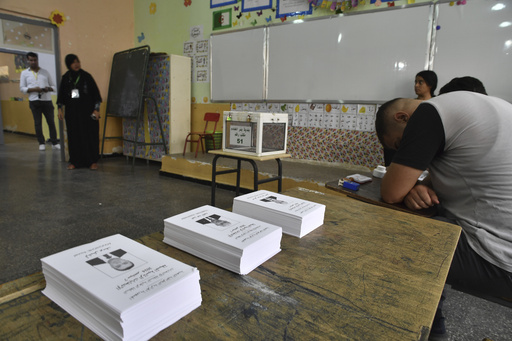Algeria is holding its presidential election on Saturday, marking five years since protests led to the ousting of the previous president by the military. The current president, Abdelmadjid Tebboune, is expected to win against the two challengers running against him. However, the key question remains how many voters will participate in the election.
Various government officials and candidates have urged Algerians to cast their ballots to support the democratic process of the country. The campaign season has been marked by voter apathy, attributed to issues such as inflation, high living costs, and water shortages in some areas due to a drought. Despite efforts to present the election season as vibrant on public television, many citizens remain disillusioned with the electoral process.
Tebboune, who was elected in 2019 following protests demanding the resignation of the former president, sees this election as an opportunity to solidify his legitimacy. The turnout in the previous election was low, and the hope is that more of the 24 million eligible voters will participate this time.
While there were initially 26 candidates, only two were approved to challenge Tebboune. Both opposition candidates have focused on encouraging voter turnout and positioning themselves for the legislative elections in 2025. Some Algerians have boycotted the election, arguing that it will only serve to maintain the status quo and empower the ruling elites.
The outcome of the election will determine the future governance of Algeria, and the level of voter participation will be closely watched to gauge the legitimacy of the elected leader. The election results may also impact the country’s relationships with its allies and how it is perceived on the international stage.


